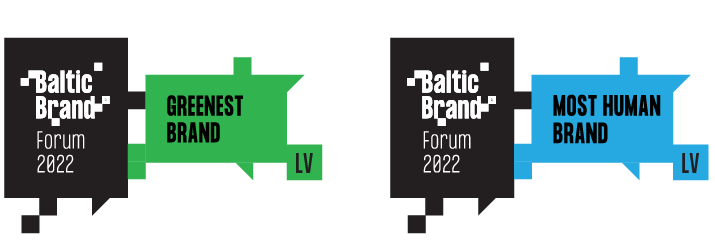Workshops and educational lectures for friends of assistance dogs
In order to fully integrate people with eyesight problems into society and use their skills in everyday life, they need a friend, assistant, helper that is able to see and warn them. A dog can fulfil the majority of these functions. It can look instead of them, give a friendly touch and confidently guide through both well-known and new ways. On 28-30 June, assistance dog keepers and active people came together in Daugavpils to participate in seminars organized by the assistance dog association “Teodors”. The program of educational seminars was created with the support of JSC “Latvia’s State Forests” (LVM) donation for social projects coordinated by charity organisation “Ziedot.lv”.
In three days practical training and seminars will be held in four cities of Latvia: Riga, Cēsis, Daugavpils, and Liepāja. “We are looking forward to meet dog keepers and foster families, as well as volunteers who are ready to acquire skills to help people with dogs. Blind people live in different places of Latvia and not always somebody can go over to visit the dog keeper if there’s a problem. For example, road reconstruction can be a huge obstacle. In such cases, a consultation is needed. The dog and its owner have to acquire new skills,” says cynologist and assistance dog trainer Zaiga Kļaviņa.
Assistance dog training – a charity project
At the moment there are eight registered dogs – assistants in Latvia. Teodors, trained by Zaiga Kļaviņa, is the most experienced of them.
The training of dogs starts from their childhood; approximately two-month-old puppies (most commonly Labrador retrievers) are given to foster families where they live until they are one year old. “We choose puppies from parents that we know; they have to be completely healthy and with a good character. But only a half of them turn out to be suitable for this job. Puppies acquire first skills in their foster families, get socialized and go through tests again after a year. If it is clear that a dog is suitable for further tuition, a specialized training starts which can last from six months to one year. In Latvia, assistance dog training isn’t paid, and that is why I can prepare only two dogs out of my pocket during a year,” says Zaiga.
Even when a dog is well-prepared and given to the owner, the job doesn’t end. Time to time, it needs new skills. Both the dog and owner have to learn in order to make a good partnership. In most cases additional consultation is needed when there are changes in an every day route or new skills should be acquired – how to use public transport, go to the shop or work.
Many dogs have come to Latvia thanks to the association’s friends from Finland – dog trainers and foster families. Talking about foster families, Gunta Bite, a Board Member of the Association points out: “It is not that simple to find a foster family. The dog becomes a family member, and it is so hard to separate it after a year. Actually, it is a sacrifice in order to help blind people. ”
Aleksejs Volcovs, the Chairman of the Association is together with Teodors already for several years. Aleksejs says: “Everything changed when Teodors came into my life. We have been guests in the TV show “Paw on the Heart” (“Ķepa uz sirds”), and we had a chance to show the society what assistance dogs are and what they mean to people who have lost their eyesight. Actually, I have fully integrated in society. I work as a social rehabilitator; I teach the Braille, how to sew buttons, cook and even shave. We use public transport in cities and train. We have flown to foreign countries and done other things that wouldn’t be possible without Teodors. People react positively to a blind person with a dog. I always get help even if I don’t ask for it.”




